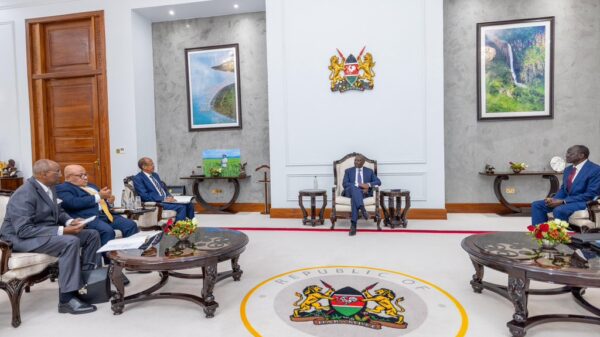ZIMUNYA, Dec 23 – For ordinary Zimbabweans this Christmas will bring a mixture of pleasure and pain, with once-empty shops full of food and drink but most families left wondering how to pay for it.
In Zimunya, a village 280 kilometres (175 miles) east of the capital Harare, a few dollars would be enough to ensure a special celebration but many people here are resigned to spending December 25 like any other day.
Webster Kurwaisimba, 38, jobless with a family of four, cannot afford to pamper his loved ones with presents. The best he can hope for is a decent meal.
"I know Christmas is almost here but I have no money and things are tough," he says. "My main concern is how will I manage to raise money for school fees for the children before schools reopen next year."
Kurwaisimba lost his job in the nearby city of Mutare and moved back to Zimunya when one of the country\’s leading wholesale chains closed several branches and laid off scores of workers in 2005.
The former goods buyer and receiving clerk is now a familiar sight on the sides of a nearby highway where he can be seen raising a bowl of wild mushrooms, signalling passing travellers to buy them. He takes home six dollars on a good day.
"If I can get 10 US dollars, it will be enough to buy bread, milk and probably chicken. That will be Christmas for me. If I can\’t get the money we will attend a church service all day."
An average Christmas dinner in Zimbabwe will comprise chicken and rice and a crate of soft drinks and beer for adults. Fortunate children will be treated to biscuits, sweets and potato crisps.
For an average family of seven, chicken will cost seven US dollars, rice will cost two dollars, a crate of drinks nine dollars and a crate of beer 20 dollars. A packet of sweets costs two dollars and biscuits three dollars.
Zimbabwe\’s economy is slowly recovering from a near decade-long crisis which saw supermarkets resemble empty warehouses because of hyperinflation which once peaked at 231 million percent, forcing daily price increases.
The crisis led the country\’s two main political blocs into a power-sharing government to try to mend the economy. In 2009 they finally agreed to scrap the worthless local Zimbabwean dollar, adopting the US greenback in its place.
Scarce commodities became readily available although to most people in rural areas many goods remain a luxury.
For shopkeepers, however, who for years have seen their shelves left bare for want of supplies, this year\’s festive season will be a boon.
Benard Tinorwiraishe, a grocery store owner in the farming district of Nyazura, is fully stocked up with cooking oil, powdered milk, tinned meat and bread, all of which were scarce at the height of the crisis.
"I cannot complain," said Tinorwiraishe drifting between the interview and his need to attend to customers trickling into the shop.
"This year all the commodities are easily available."
But for every shopkeeper on the up there are hundreds of ordinary citizens facing a harsh day with little hope of respite.
Widows Hilda and Margaret Nhukarume will use Christmas to thank God for sustaining them through a difficult year without their husband.
They were left with seven children each and they are also looking after their husband\’s two children from another marriage.
"We don\’t have any plans," says Hilda, the younger of the widows from a polygamous marriage.
"We cannot afford to buy the children clothes to wear on Christmas day. We wish we could but we can\’t. We will be content if we get five dollars to buy a maize meal. It will be just another day unless a well-wisher comes to our aid."
The Consumer Council of Zimbabwe (CCZ), a customer watchdog, said the food basket for an average family climbed in December to 144.19 dollars from the November figure of 142.77 dollars.
The council said the rise was caused by retailers who put up prices to cash in on consumer spending at Christmas time.
With civil servants — who make up the bulk of formally employed Zimbabweans — earning an average of 150 dollars per month, many have little or nothing to spare for the traditional rural Christmas.
"In the past many in rural areas got a transfer of wealth during Christmas from family members working on farms, in mines and in towns who either came to visit or sent money," said independent economist John Robertson.
"It\’s now pretty hard for people in general. Money is scarce and expenses are high."
































